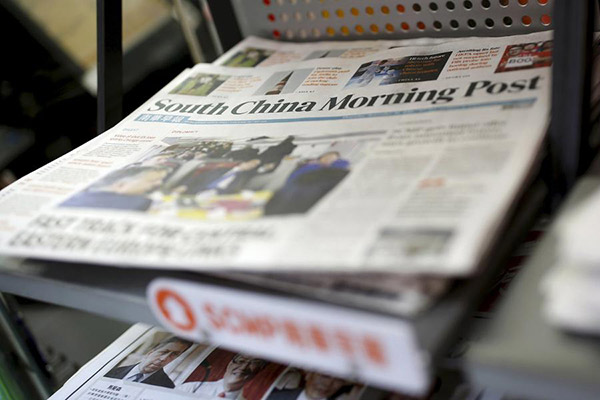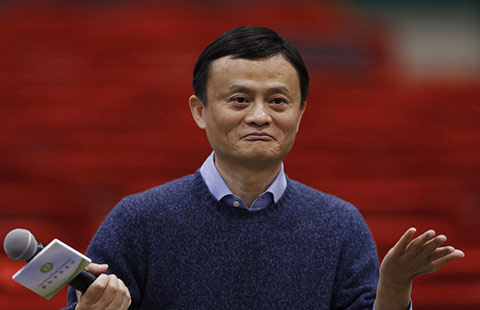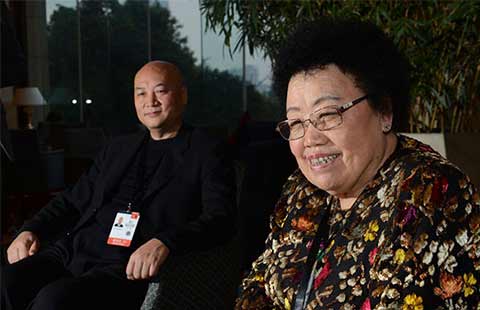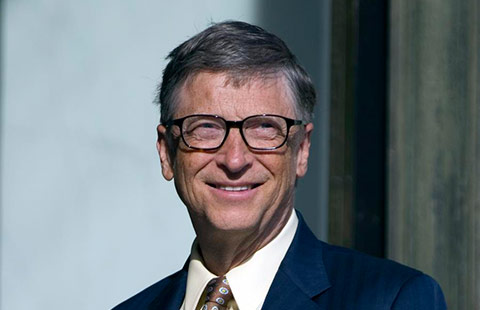SCMP deal just another step for Alibaba's media empire dream
By Luo Weiteng (China Daily) Updated: 2015-12-15 07:25
 |
|
Copies of the South China Morning Post (SCMP) newspaper are seen on a newspaper stand in Hong Kong, China, in this November 26, 2015 file photo.[Photo/Agencies] |
"The SCMP acquisition is just one of the building blocks, if not a vital one, for Alibaba's growing media empire and ecosystem," said Hanna Li Wai-han, a strategist at UOB Kay Hian (Hong Kong) Ltd. "(Alibaba founder-chairman) Jack Ma himself has long taken a keen personal interest in media assets, given the e-commerce behemoth's fruitful track record of buying media properties."
Statistics show that at least 24 media organizations, from mainland financial news outlet China Business Network to online video giant Youku Tudou Inc, are owned or invested in by Alibaba and its affiliate companies.
The flagship Hong Kong-based newspaper group in a statement on Monday announced the purchase by Alibaba, a move reminiscent of Amazon Inc founder Jeff Bezos' $250 million buyout of The Washington Post in 2013.
This is not the first buyout of a century-old newspaper seen this year. In July, Japan's biggest media company Nikkei Inc agreed to buy the 127-year Financial Times from Pearson Plc for $1.3 billion.
These headline-making deals confirmed the trend of corporates owning media outlets, said Ben Kwong Man-bun, the Hong Kong-based executive director and head of research at brokerage firm KGI Asia.
Li said Alibaba's all-cash purchase of SCMP's media assets constitutes just a tiny part of its massive business landscape and will have little impact on its financial situation and earning performance.
It may be noted that the SCMP, with its 112-year history as a prestigious English-language daily and once the envy of the industry in terms of profitability, has been feeling the pinch in recent years amid the rampant rise of free online publications.
The struggling traditional media group, which used to rely on foreign advertisers as revenue generators, may in fact see this buyout as "financially positive", as it can expect to capitalize on Alibaba's network to get easier access to many more cash-rich mainland advertisers, added Li.
- SCMP deal just another step for Alibaba's media empire dream
- Economists expect yuan 'to continue falling against dollar'
- Short-distance personal transport goes high-tech
- China, UAE launches $10b investment fund
- Baidu 'self-driving' cars to hit roads in 3 years
- Reasonable economomic growth rate targeted
- 7 highlights of Second World Internet Conference
- China extends currency swap agreement with UAE

















